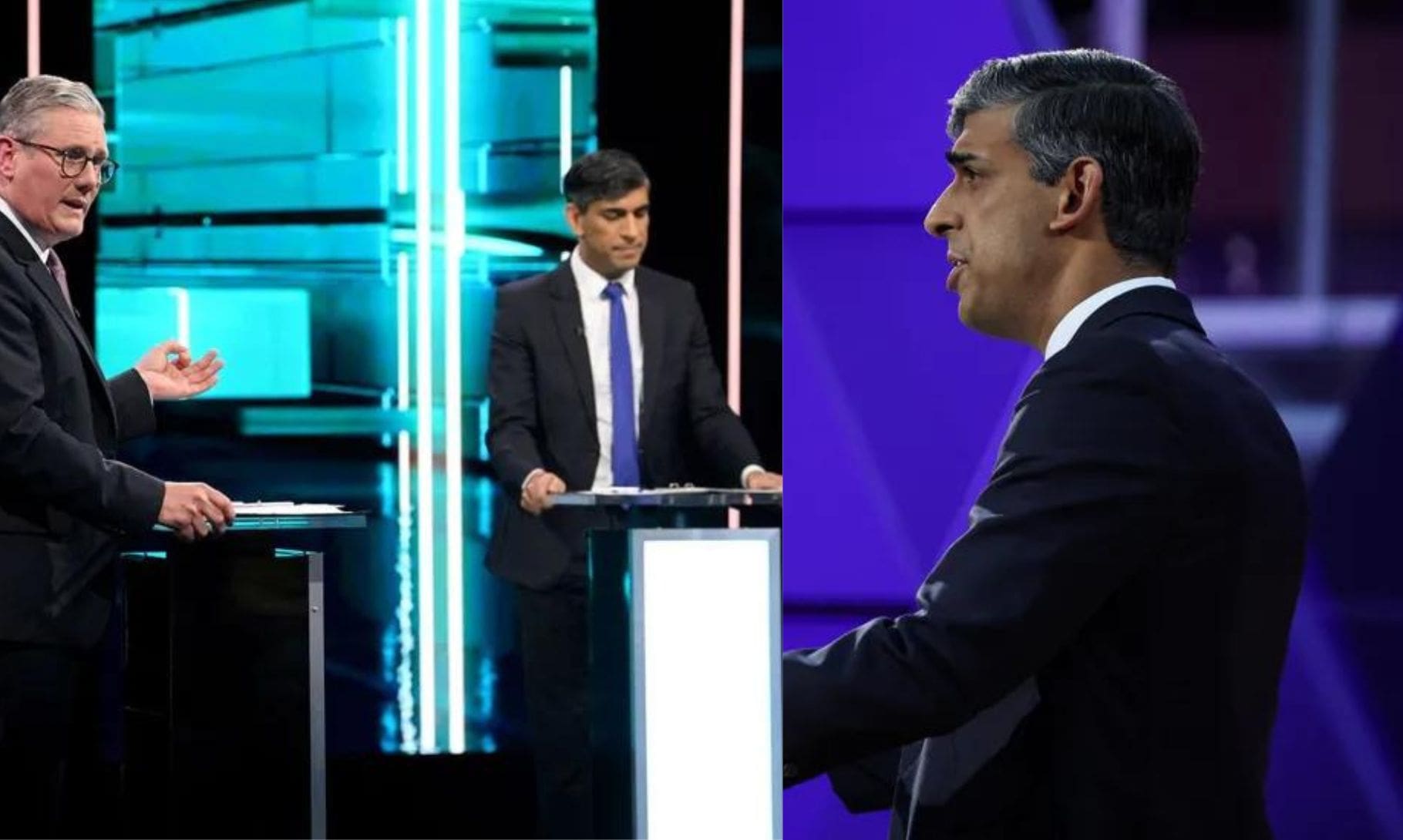Keir Starmer, leader of the Labour Party and Rishi Sunak, leader of Conservative Party clashed in a crucial debate before the upcoming election on Thursday. Despite Starmer’s readiness, he struggled to respond to Sunak’s criticisms on taxes and immigration. This highlighted a gap between Starmer’s strong polling and lukewarm public support.
While Starmer is smart and quick, he often seems distant and unemotional due to his careful approach in debates and public appearances. Labour Party avoided weekly clashes with Sunak to protect Starmer’s image, but it showed caution rather than confidence.
In contrast, Rishi Sunak from the Conservatives was aggressive, aiming to unsettle Starmer and reshape the political narrative. He stressed the importance of a clear plan for change, different with Starmer’s realization in lack of one. Despite controversies, Sunak’s energetic performance aimed to boost his campaign.
During the debate, Starmer briefly countered Sunak’s attacks, he criticized how the Prime Minister handled COVID lockdown rules and addressed concerns about government disconnect. However, his cautious approach prevented him from making a big impact or outlining clear policies that could have strengthened his lead in the polls.
While Sunak might have won the debate traditionally, a quick poll showed mixed public opinion. Still, the debate likely won’t change the election’s course, where Labour seems set for a big win. Starmer’s strategy of avoiding controversy and keeping a low profile may have its merits but hasn’t fully convinced the public or clarified his policy plans.
Starmer’s leadership style and campaign strategy is a point of discussion. Despite attempts to humanize himself with personal stories, like mentioning his father’s job as a toolmaker, Starmer struggles to connect emotionally with voters. This raises doubts about his ability to effectively govern and address major issues like healthcare and climate change without clearer policy commitments.
The debate at Nottingham Trent University mirrored the larger election campaign, where both Starmer and Sunak faced public doubt and presented competing visions for the future. Amid criticisms and distractions, they aimed to prove their leadership qualities to voters seeking clarity and decisive action on key national challenges. The UK elections are scheduled for 4 July.







